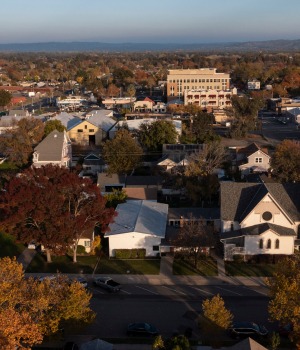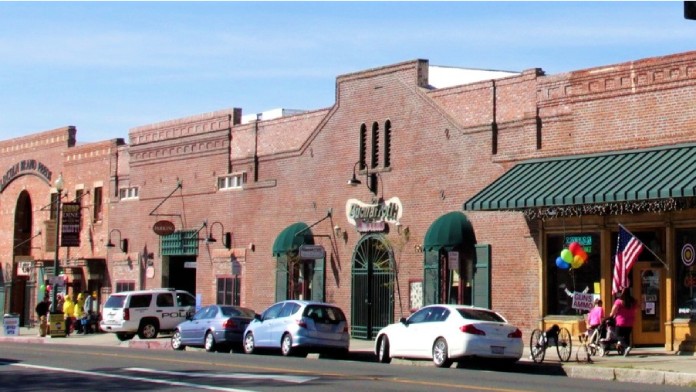Alcohol and Drug Use Statistics in Lincoln, CA
The health of the residents of Lincoln and Placer County has been affected by substance misuse. Here is some data detailing drug and alcohol misuse among the residents of Placer County:1, 2, 3
There were 414 prescriptions for opioids for every 1,000 residents in 2021.
In 2021, 24% of adults stated that they drank to excess.
30% of motor vehicle deaths were caused by alcohol-impaired driving in 2021.
Levels of Care for Substance Abuse
Multiple levels of care exist for alcohol and drug rehab in California. Some residents require all levels of care during their journey to recovery, while others receive only the less intensive options.
Medical Detox
Detox is the process of safely and comfortably removing drugs or alcohol from your system while in a supervised medical setting. Many people choose a medical detox program to prevent severe withdrawal symptoms. This is often the first step in the recovery process, completed before transitioning into formal inpatient addiction treatment services.
Inpatient Care
An inpatient or residential setting involves living at an accredited rehab facility 24/7 to receive treatment for addiction. A combination of evidence-based interventions are provided, including individual and group therapy, nutritional counseling, and medication administration.
Partial hospitalization programs (PHPs)
PHPs are a type of outpatient treatment in California that often involve many of the same therapies and methods of inpatient care. The difference being that you only visit the drug rehab during scheduled session times, then you can return home.
Intensive Outpatient Programs (IOPs)
A step down from PHPs, IOPs are a type of outpatient treatment in California allowing you to attend onsite sessions for several hours a day, multiple days each week, while spending the rest of your time at home, working, or fulfilling other obligations.
Standard Outpatient
As the least intensive setting, standard outpatient care is appropriate for California residents who are highly motivated and have a strong support system. It involves just one or two hours of treatment per week.
Relapse Prevention
Aftercare, or relapse prevention, provides ongoing support after a rehab program is complete. Aftercare may include 12-step groups, non-12-step groups like SMART Recovery, ongoing therapy, sober living homes, and more.
How to Pay for Substance Abuse Treatment in California
Private Insurance
Every insurance provider in the U.S. is required by law to provide at least some coverage for mental health and substance abuse treatment. In California, residents should contact their insurance provider to confirm specific coverage with their carrier, including applicable copays.
Medi-Cal
Medi-Cal is California’s Medicaid program. Funded by federal and state taxes, this program pays for medical services for children and adults who have limited income. To qualify for Medi-Cal, California residents must meet income requirements and be one of the following: pregnant, responsible for a child under 21 years old, blind, disabled or a disabled family member, or 65 years or older.
California Medicare
California Medicare is a government program providing coverage to residents who are over the age of 65 or who have end-stage renal disease. California residents can use Medicare to cover the cost of rehab and other addiction treatment services; however, not all rehabs accept Medicare insurance.
Sliding Scale Payment Options
Sliding scale payment plans only charge California residents what they can afford, based on their income. To qualify, residents typically need to provide proof of income and assets.
TRICARE in California
California TRICARE (West Region) is a government program that provides health insurance for military personnel, veterans, and their dependents. TRICARE coverage includes addiction treatment services, such as rehab and medication-assisted treatment (MAT).
IHS-Funded Drug Rehabs
Drug rehab programs funded by the Indian Health Service provide free addiction treatment to California Natives and Indigenous peoples in the U.S.

Getting to and Around Lincoln, CA
An accredited rehab can help you start on the road to recovery. Once you find the rehab center that you wish to attend, a professional can guide you toward the right therapies for you. Those therapies may include inpatient or outpatient rehab. You may even need to attend detox before transitioning to other treatments.
The right rehab center will walk you through therapy to help you better understand your substance use disorder. If you qualify financially, you may even be able to attend rehab for free.
You or a loved one may be considering attending drug or alcohol rehab in Lincoln. If so, here is some information about the city to help you on your travels:
- If you are flying, the closest airport to Lincoln is Sacramento International Airport located about 38 miles from the city.
- There are a number of comfortable hotel and motel accommodations to fit any budget.
- Lincoln isn’t very walk-friendly so you may want to have arrangements for your own transportation. The city is moderately bike-friendly.
- If you enjoy history, then visit the Lincoln Area Archives Museum and the Lincoln Home National Historic Site.
- For family-centered entertainment, you can visit the Roseville Golfland Sunsplash, the Folsom City Zoo Sanctuary, and the SeaQuest Folsom in nearby Folsom.
- Golf lovers will enjoy the Lincoln Hills Golf Club and the Turkey Creek Golf Club.
- You can visit a wide range of parks for outdoor recreation including Coyote Pond Park, McBean Memorial Park, and Foskett Regional Park.
- For unique shopping, visit the Lincoln Village at Twelve Bridges.
- Art lovers may enjoy a visit to the Art League of Lincoln.
- If you have a four-legged furry friend, you can visit the Auburn Ravine Dog Park.
California Alcohol and Drug Laws
California law includes the following policies related to substance abuse:1,2,3,4,5
California Employee Protections for Drug or Alcohol Rehab: California’s labor code requires employers with 25 or more employees to provide accommodation to staff who voluntarily choose to attend alcohol or drug rehab. This may include unpaid time off or use of sick or vacation time. Employees who wish to request time off for addiction treatment may be able to request it under the Family and Medical Leave Act or the California Family Rights Act.
Substance Abuse and Crime Prevention Act: This act provides treatment opportunities for individuals who are convicted of non-violent crimes. Eligible offenders may serve their time in drug treatment rather than in prison.
California Government Prevention and Care Services: Senate Bill 110 expanded these services to include contingency management (an incentivized treatment program) as a benefit covered under Medi-Cal. Patients who demonstrate substance-free behavior, such as drug-free urine tests, are rewarded with vouchers or gift cards.
California Ethical Treatment for Persons with Substance Use Disorder Act: This bill protects residents undergoing addiction treatment by requiring alcohol and drug rehabs in California to adopt a client bill of rights that seeks to ensure every client is are treated with dignity, honesty, and respect.
California’s Good Samaritan Law: This law encourages California residents to call 9-1-1 if an overdose is suspected. It protects individuals who seek emergency medical care for overdose from legal repercussions for possession of a controlled substance/drug paraphernalia or providing alcohol to minors.
Resources
- County of Placer. (2022). Fighting Fentanyl in Placer County.
- California Department of Public Health. (2022). California Overdose Surveillance Dashboard.
- University of Wisconsin Population Health Institute. (2022). County Health Rankings and Roadmaps: California-Placer County.


